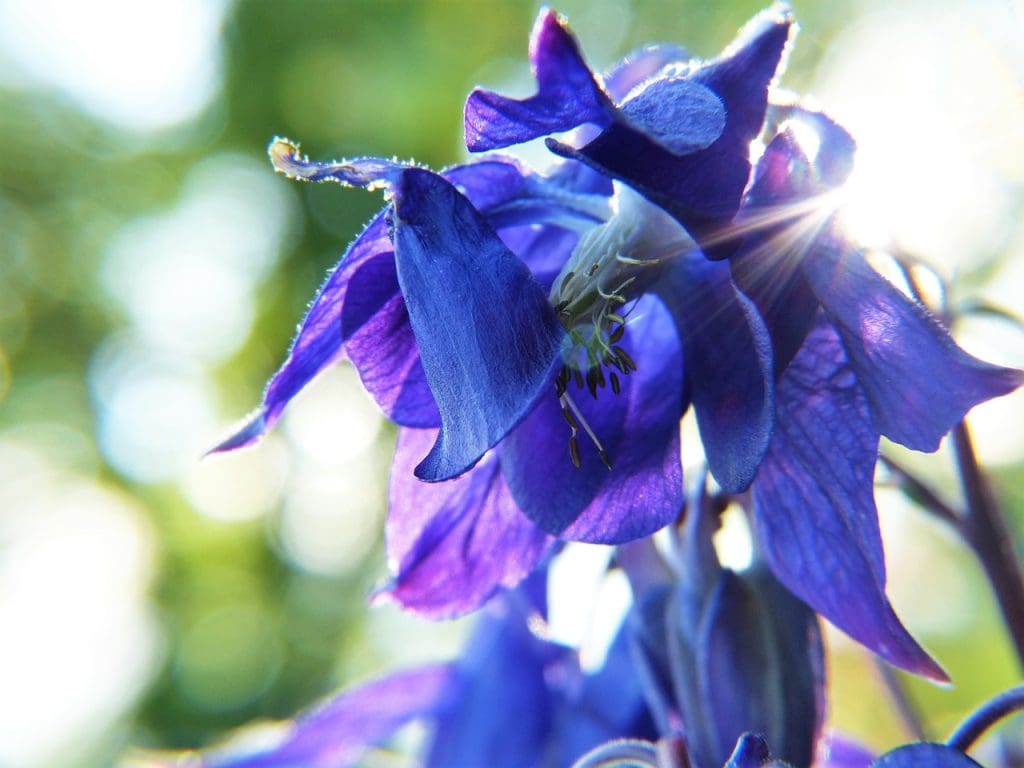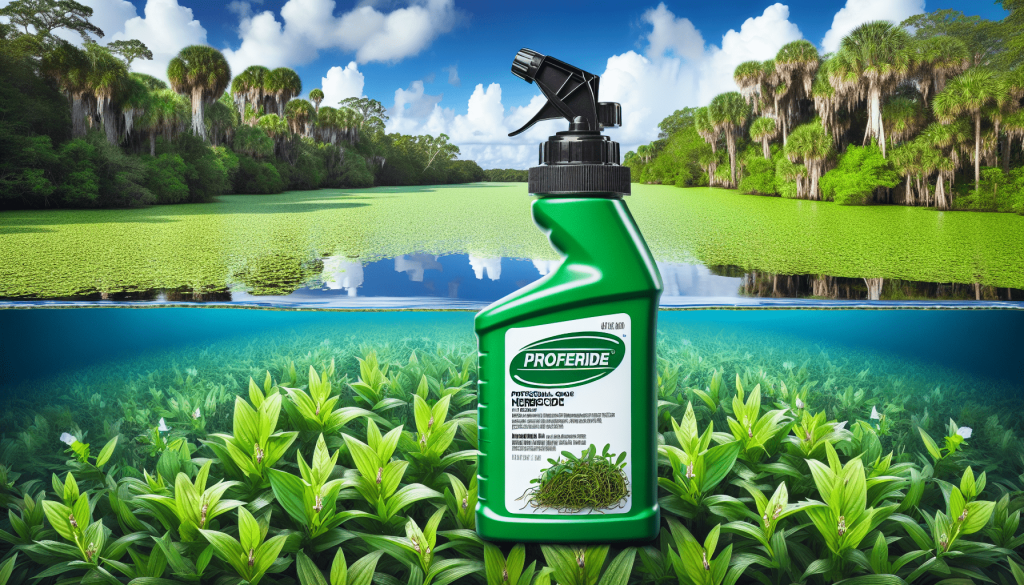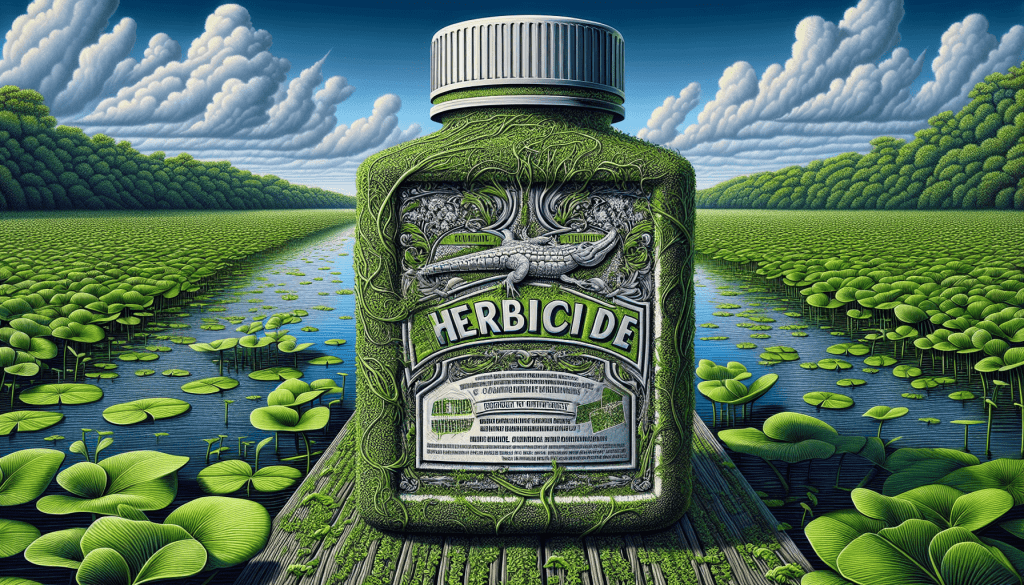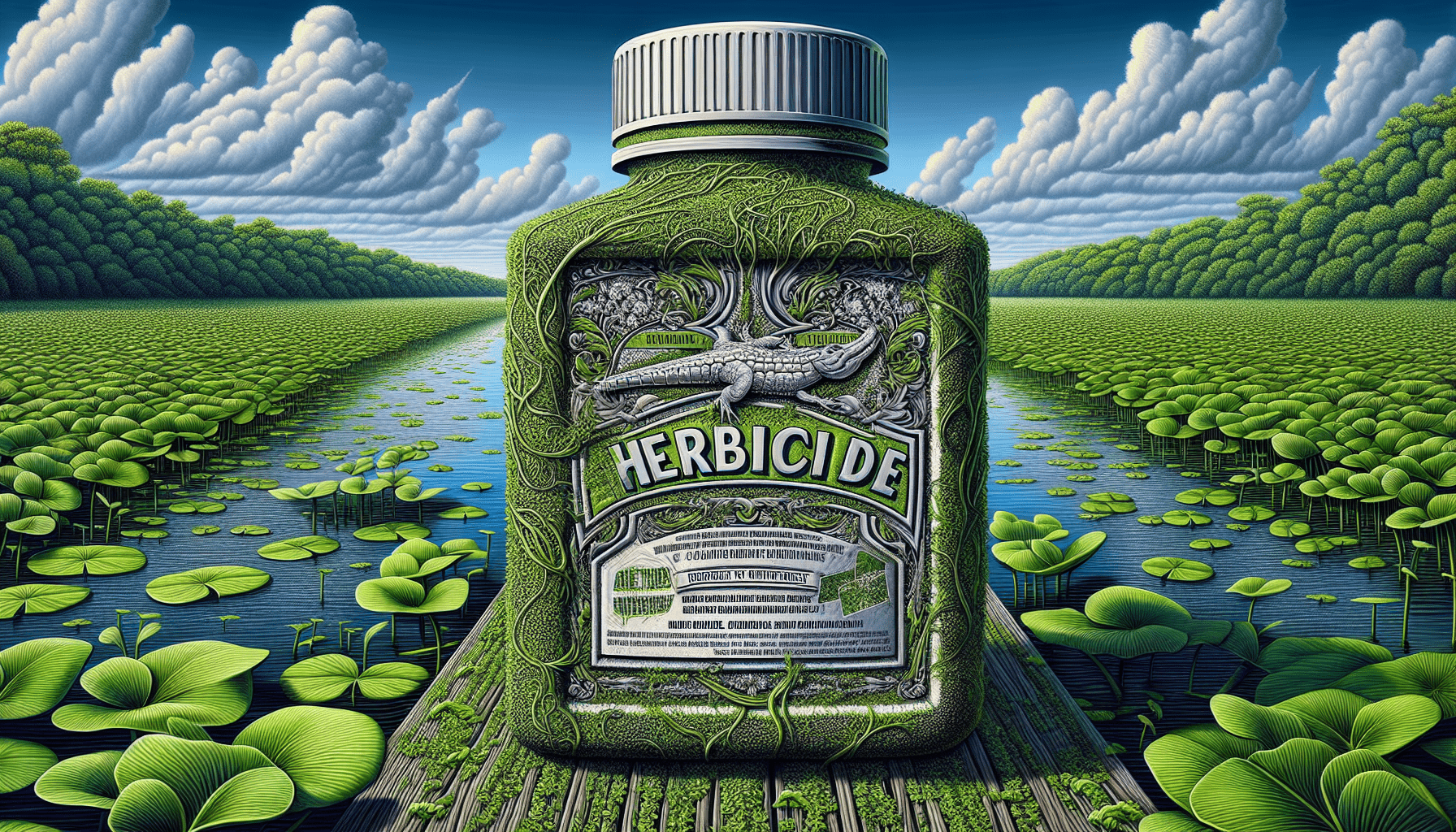Welcome to your ultimate resource for tackling the persistent problem of alligator weed! In the “Buyer’s Guide For Selecting The Best Herbicides For Alligator Weed Control,” you’ll discover essential tips and expert advice to help you choose the most effective and environmentally friendly solutions. This guide covers everything from understanding the nature of alligator weed to evaluating various herbicide options, ensuring you have all the information needed to make an informed decision. Dive in and empower yourself to reclaim your garden or landscape with ease and confidence!
Buyer’s Guide For Selecting The Best Herbicides For Alligator Weed Control
Have you been struggling with alligator weed and wondering how to get rid of it once and for all? You’re not alone! Alligator weed (Alternanthera philoxeroides) is notorious for its invasiveness and resilience, making it a significant challenge for many homeowners and land managers. Fear not, because this guide will walk you through everything you need to know about selecting the best herbicides for effective alligator weed control.
Understanding Alligator Weed
Before we dive into the details of herbicides, it’s essential to understand what you’re dealing with. Alligator weed is a perennial plant native to South America but has become an invasive species in many parts of the world. It grows in both aquatic and terrestrial environments, making it quite a versatile invader.
Characteristics of Alligator Weed
Alligator weed can quickly take over water bodies, shorelines, and even agricultural fields. Its mat-forming growth habit can obstruct waterways, making boating and other water activities challenging. On land, it can smother native plants and crops. Here are some key characteristics to identify alligator weed:
- Leaves: Opposite arrangement, elongate, glossy, dark green with smooth margins.
- Stems: Hollow, can float on water.
- Flowers: Small, white, and form in clusters.
- Roots: Extensive root systems can regenerate from fragments.
Common Problems Caused by Alligator Weed
This invasive plant can wreak havoc on ecosystems, water bodies, and agriculture. Understanding the problems it creates can help you appreciate why selecting the right herbicide is crucial.
Environmental Impact
Alligator weed can displace native species, resulting in biodiversity loss. It also creates thick mats on water surfaces, reducing light penetration, thus affecting aquatic life.
Economic Implications
In agricultural settings, alligator weed competes with crops for nutrients, water, and light, leading to reduced yields. Managing this weed often requires significant financial investment in terms of labor and herbicides.

The Importance of Herbicide Selection
Selecting the right herbicide is critical for effectively managing alligator weed. The ideal herbicide should be potent enough to eradicate it but also safe for the surrounding environment and non-target species.
Factors to Consider
When choosing a herbicide, several factors come into play, including:
- Effectiveness: How well it kills alligator weed.
- Type: Pre-emergent or post-emergent.
- Application Method: How it is applied – spray, granules, etc.
- Environmental Impact: Potential harm to non-target species and surroundings.
- Cost: Budget considerations for large-scale applications.
Types of Herbicides for Alligator Weed Control
Herbicides can be categorized based on their mode of action, target species, and application. Let’s explore the different types suitable for alligator weed control.
Pre-emergent vs. Post-emergent Herbicides
- Pre-emergent: Prevent weeds from germinating. Not commonly used for alligator weed because it often targets germinating seeds.
- Post-emergent: Kill existing weeds. Most effective for alligator weed as it targets mature plants.
Selective vs. Non-selective Herbicides
- Selective: Targets specific weed species while sparing others. Useful if you want to protect certain plants.
- Non-selective: Kills all vegetation it contacts. Effective for wiping out alligator weed but can harm desirable plants.
Systemic vs. Contact Herbicides
- Systemic: Absorbed by the plant and translocated to the entire system, ensuring complete eradication. Ideal for perennial weeds like alligator weed.
- Contact: Kills only the parts of the weed it touches. May require multiple applications.

Recommended Herbicides for Alligator Weed Control
To make your selection process easier, here are some highly recommended herbicides specifically effective against alligator weed.
| Herbicide Name | Type | Application Rate | Mode of Action | Notes |
|---|---|---|---|---|
| Glyphosate | Non-selective, systemic | 2-4 quarts/acre | Inhibits protein synthesis | Effective, often requires multiple applications |
| Imazapyr | Non-selective, systemic | 0.5-1 gallon/acre | Inhibits enzyme activity | Long-lasting control, caution near water |
| Triclopyr | Selective, systemic | 1-2 quarts/acre | Disrupts growth hormones | Safe for grasses, effective for broadleaf plants |
| 2,4-D Amine | Selective, systemic | 1-2 quarts/acre | Mimics plant hormones | Effective for terrestrial use, avoid water bodies |
Glyphosate
Glyphosate is perhaps the most well-known herbicide for alligator weed control. It’s non-selective, meaning it will kill any plant it contacts. This herbicide works by inhibiting a specific enzyme pathway necessary for plant growth.
Application Tips
- Timing: Apply during the active growing season.
- Method: Spray uniformly over the infested area.
- Precautions: Avoid contact with desirable plants and water bodies.
Imazapyr
Imazapyr is another potent herbicide that provides long-lasting control of alligator weed. It’s absorbed by the plant and prevents the synthesis of essential enzymes.
Application Tips
- Timing: Apply when the plants are actively growing.
- Method: Suitable for both foliar and soil applications.
- Precautions: Use with caution near water bodies due to potential toxicity.
Triclopyr
Triclopyr is a selective herbicide, making it a choice for areas where you want to preserve grasses while targeting broadleaf weeds like alligator weed.
Application Tips
- Timing: Best applied in the spring or summer.
- Method: Foliar spray for larger infestations.
- Precautions: Safe to use near grasses but avoid contact with water bodies.
2,4-D Amine
2,4-D Amine is effective for controlling alligator weed in terrestrial environments. It mimics natural plant hormones, causing uncontrolled growth that leads to plant death.
Application Tips
- Timing: Use during active growth phases.
- Method: Foliar application is most effective.
- Precautions: Should not be used near water bodies due to potential environmental impact.
Herbicide Application Methods
How you apply the herbicide can significantly affect its efficiency. Here are some common methods suitable for alligator weed control.
Foliar Spray
Foliar spraying involves applying the herbicide directly to the leaves and stems of the alligator weed. This method ensures that the chemical is absorbed by the plant and translocated to the root system.
Tips for Effective Foliar Spraying
- Equipment: Use a sprayer with adjustable nozzles for even coverage.
- Coverage: Ensure thorough coverage without over-saturating.
- Timing: Best applied during early growth phases for maximum uptake.
Soil Application
Soil application involves applying the herbicide to the soil where it is absorbed by the roots. This method is particularly effective for systemic herbicides like Imazapyr.
Tips for Effective Soil Application
- Rate: Follow manufacturer guidelines for application rates.
- Even Distribution: Apply uniformly to ensure complete coverage.
- Moisture: Ensure the soil is moist to facilitate uptake.
Wicking
Wicking involves using a herbicide-saturated wick to wipe the foliage of weeds. This method is effective for targeting specific plants without affecting surrounding vegetation.
Tips for Effective Wicking
- Equipment: Use a wick applicator designed for herbicide application.
- Contact: Ensure good contact with the foliage for maximum absorption.
- Safety: Wear protective gear to avoid herbicide exposure.

Safety Precautions and Environmental Considerations
While herbicides are effective tools for controlling alligator weed, they must be used responsibly to minimize risks to human health and the environment.
Personal Safety
Always take appropriate safety measures when handling and applying herbicides.
Essential Safety Tips
- Protective Gear: Wear gloves, goggles, and long-sleeved clothing.
- Label Instructions: Follow the manufacturer’s instructions meticulously.
- Storage: Keep herbicides in a secure, ventilated area away from children and pets.
Environmental Safety
Herbicides can pose risks to non-target species and ecosystems. Using them responsibly will help mitigate these risks.
Key Environmental Tips
- Avoid Water Bodies: Be cautious when applying herbicides near wetlands or aquatic environments.
- Weather Conditions: Avoid application on windy days to prevent drift.
- Buffer Zones: Establish buffer zones around sensitive areas to protect non-target plants and wildlife.
Integrated Weed Management (IWM)
While herbicides are a critical component of alligator weed control, integrating other management practices can enhance the effectiveness and sustainability of your efforts.
Mechanical Control
Mechanical control involves physically removing alligator weed through mowing, cutting, or dredging. While labor-intensive, it’s a valuable method for reducing weed biomass.
Techniques
- Mowing: Regular mowing can suppress growth but may not eliminate root systems.
- Cutting: Sharp tools can cut and remove above-ground parts.
- Dredging: Useful for aquatic infestations, involves removing weed mats from water bodies.
Biological Control
Biological control uses natural predators or pathogens to control alligator weed. While not a standalone solution, it can support other methods.
Biological Agents
- Arthropods: Insects that feed on alligator weed.
- Pathogens: Fungi or bacteria that infect the plant.
Cultural Control
Cultural control involves modifying the environment to make it less favorable for alligator weed growth. This can include improving drainage, managing water levels, or altering soil conditions.
Cultural Techniques
- Drainage: Improve drainage in the area to reduce waterlogging.
- Water Levels: Manipulate water levels to expose and stress the weed.
- Soil Management: Adjust soil conditions to favor desirable plants over alligator weed.

Monitoring and Maintenance
Effective alligator weed control requires ongoing monitoring and maintenance. Staying vigilant will help you catch new infestations early and prevent regrowth.
Regular Inspections
Conduct regular inspections of your property to identify and address new weed growth promptly.
Inspection Tips
- Frequency: Inspect at least once a month.
- Documentation: Keep records of weed locations, size, and treatment methods.
- Adaptation: Adjust your control strategies based on inspection results.
Conclusion
Controlling alligator weed is a challenging but achievable task with the right approach and tools. By selecting the appropriate herbicides, following best practices for application, and integrating other management techniques, you can effectively manage this invasive weed and protect your property and environment.
Remember, persistence is key. Consistent efforts and diligent monitoring will significantly increase your chances of long-term success. So gear up, follow this comprehensive guide, and take control of alligator weed once and for all!

